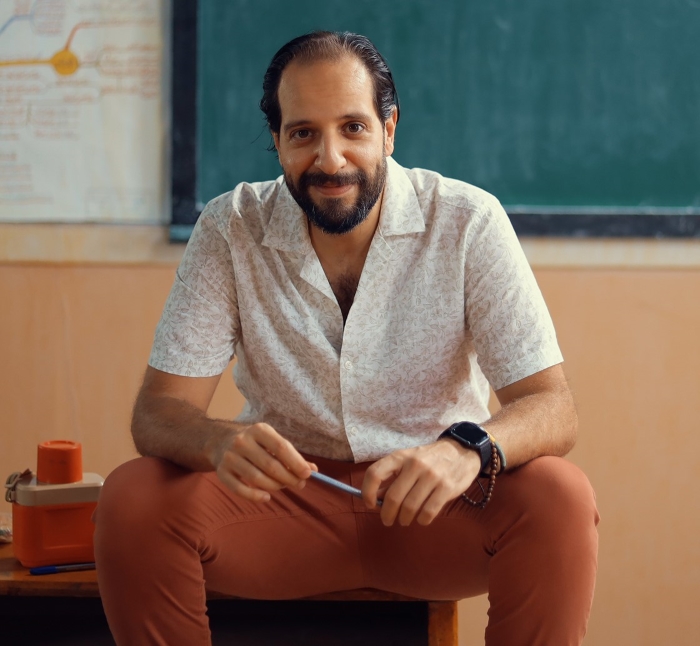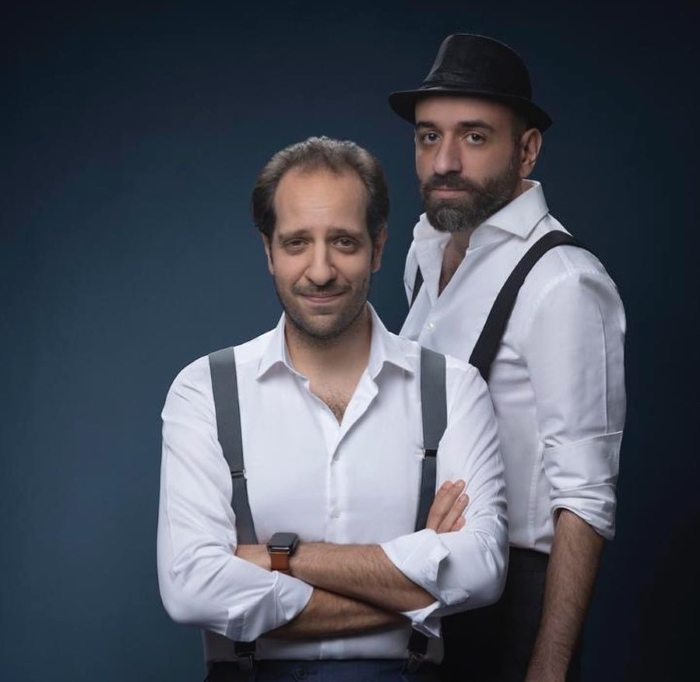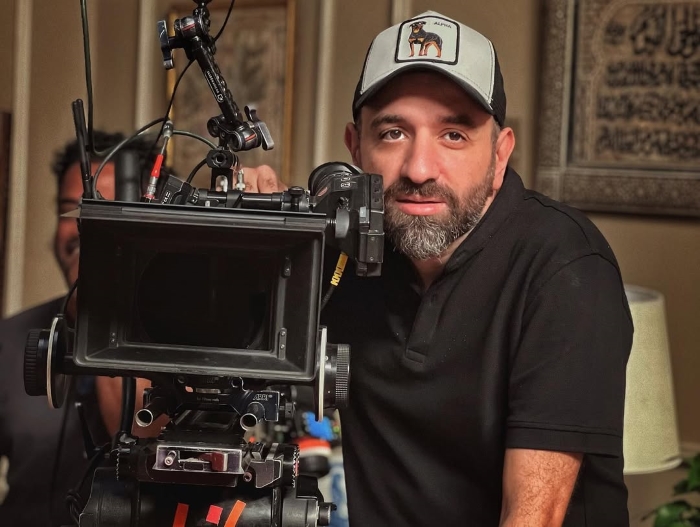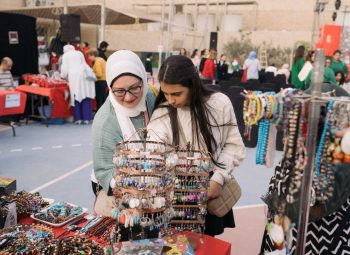The official promo for Sa3to w Tareekho ignited a firestorm of controversy shortly after its release. Social media erupted with debates linking the character portrayed by Mayan El Sayed to the tragic case of Naira Ashraf, the Mansoura University student whose murder shocked Egypt in June 2022.
As the drama builds ahead of the series premiere on December 5 on DMC, it’s clear that this project has sparked a dialogue about creative boundaries, ethics, and the depiction of real-life tragedies in entertainment.
The Promo

The promotional video for Sa3to w Tareekho opens with an ominous narration, as well as visuals relying heavily on dark tones, both in costumes and cinematography. This feeds the show’s overall theme of being inspired by real Egyptian court cases. The star-studded cast includes Ahmed Amin, Mohamed Shaheen, Arwa Gouda, Khaled Kamal, Hanan Soliman, Heba Magdy, and Mayan El Sayed, among others. While the series promises to dive deep into social issues through dramatised true crime stories, it is Mayan El Sayed’s role that has drawn the most attention and backlash.
Naira Ashraf’s Tragic Case

The promo showcases Mayan El Sayed in an intense moment, sitting on a bus and crying, an image that sparked speculation among viewers. Many linked her character to Naira Ashraf, whose brutal murder at the gates of Mansoura University by a rejected admirer horrified the nation. This association has stirred outrage, with viewers accusing the series of exploiting a deeply sensitive case.
Mayan El Sayed addressed the allegations, categorically denying any connection between her character, Nadia, and Naira Ashraf. She clarified that her role reflects the struggles of many young women who face societal challenges, rather than portraying any specific individual. However, her statement has done little to calm the backlash.
Naira’s Family Speaks Out

Naira Ashraf’s family has publicly condemned the series, asserting that portraying Naira’s life without their consent is unethical and deeply painful. Her sister, Shorouk Ashraf, expressed her anger in a heartfelt Facebook post, recounting the torment their family endured before and after Naira’s tragic death. She argued that revisiting this story through dramatisation disregards their grief and reopens wounds they are still struggling to heal.
Shorouk’s sentiments were echoed by the family’s lawyer, Khaled Abdel Rahman, who vowed to pursue legal action if the series included depictions of Naira’s case. He emphasised that such portrayals require explicit written consent from Naira’s family, which has not been granted.
True Crime Adaptations

The uproar surrounding Sa3to w Tareekho raises broader questions about the ethics of dramatising true crime stories, particularly when those stories involve recent, high-profile tragedies. While true crime has become a popular genre globally, critics argue that such adaptations often prioritise sensationalism over sensitivity, exploiting the pain of victims’ families for entertainment value.
However, some argue that dramatised depictions can serve as a form of social commentary, shedding light on systemic issues and sparking public dialogue. In this case, the creators of Sa3to w Tareekho claim their intent is to address societal challenges through compelling storytelling.
Artistic Freedom vs. Public Sensitivity

The controversy surrounding Sa3to w Tareekho highlights the tension between artistic freedom and public sensitivity. While creators have the right to tell impactful stories, they must also navigate the ethical implications of their work, especially when dealing with real-life tragedies. Whether it will spark further backlash or be embraced as a powerful piece of storytelling remains to be seen. One thing is certain: this docudrama has already achieved what many productions strive for, capturing public attention and igniting conversation.
In the end, audiences will decide whether Sa3to w Tareekho is a brave exploration of societal issues or an exploitative misstep. Until then, the debate over artistic boundaries, ethics, and the portrayal of real-life tragedies will continue to dominate the conversation.







